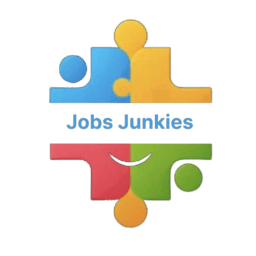Choosing between freelance and full-time work is a significant decision that can shape your career and lifestyle. Both paths have their pros and cons, and the right choice depends on your personal circumstances, career goals, and preferences. Here’s a detailed comparison to help you determine which option is best for you:
Freelance Work
Pros:
- Flexibility: Freelancers often have the freedom to set their schedules and choose their projects. This flexibility can lead to a better work-life balance.
- Diverse Opportunities: Freelancing allows you to work on a variety of projects for different clients, helping you build a diverse portfolio and gain new skills.
- Potential for Higher Earnings: Depending on your industry and skill set, freelancing can offer the potential for higher pay, as you can set your rates and take on multiple clients.
- Autonomy: Freelancers can choose their work environment and methods, leading to a sense of independence and ownership over their work.
Cons:
- Inconsistent Income: Freelancers may experience fluctuating income due to the nature of project-based work, which can lead to financial uncertainty.
- Lack of Benefits: Freelancers typically don’t receive benefits such as health insurance, retirement plans, or paid time off, which can add to financial strain.
- Self-Management: Managing your own business means handling marketing, accounting, and client relations, which can be time-consuming and overwhelming.
- Isolation: Freelancers may miss out on the social interactions and camaraderie that come with a traditional office environment.
Full-Time Work
Pros:
- Stable Income: Full-time positions usually provide a consistent paycheck, making budgeting and financial planning easier.
- Employee Benefits: Full-time employees often receive benefits such as health insurance, retirement contributions, paid time off, and more, which contribute to overall job satisfaction.
- Career Development Opportunities: Many companies offer training, mentorship, and advancement opportunities for full-time employees, which can lead to career growth.
- Structured Environment: A full-time job typically provides a clear structure, including defined working hours and responsibilities, which can help some individuals thrive.
Cons:
- Less Flexibility: Full-time work often comes with set hours and responsibilities, leaving less room for personal projects or time off.
- Limited Autonomy: Employees may have less control over their work and environment, as they must adhere to company policies and procedures.
- Potential for Burnout: The demands of a full-time job can lead to burnout, especially if work-life balance is not maintained.
- Office Politics: Navigating workplace dynamics and office politics can be challenging and stressful for some individuals.
Factors to Consider When Choosing
- Your Career Goals: Consider your long-term career aspirations. If you value independence and variety, freelancing might be suitable. If you seek stability and growth within a specific organization, full-time work could be a better fit.
- Financial Situation: Assess your financial needs and obligations. Freelancing may require a financial cushion to navigate periods of low income, while full-time work offers predictable earnings.
- Work Style: Reflect on your work preferences. Do you thrive in a structured environment, or do you prefer the freedom of working on diverse projects? Your personality and work style can heavily influence your decision.
- Industry Dynamics: Research the job market in your field. Some industries may offer more freelance opportunities, while others may have a higher demand for full-time employees.
- Personal Circumstances: Consider your personal life, including family commitments and lifestyle preferences. Your current situation may heavily influence your choice.
Conclusion
Both freelance and full-time work offer unique advantages and challenges. The best choice for you depends on your individual circumstances, career goals, and work preferences. Take the time to weigh the pros and cons of each option, considering your financial needs, work style, and long-term aspirations. Ultimately, choosing the right path will lead to greater satisfaction and fulfillment in your career.
